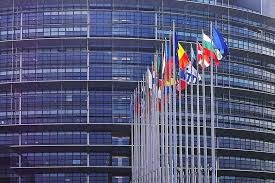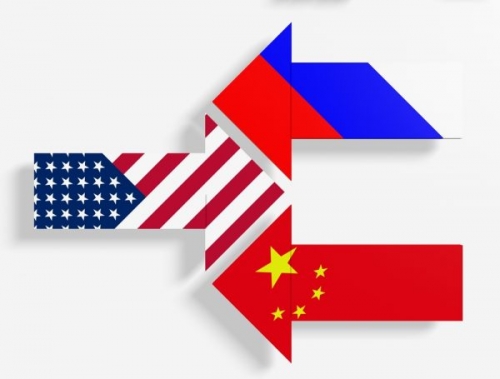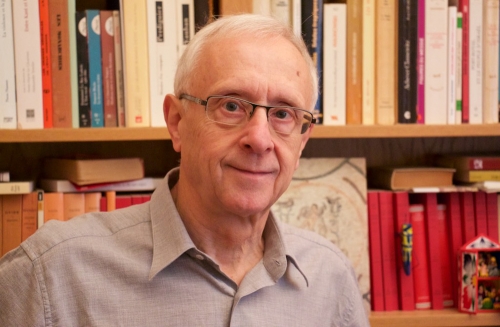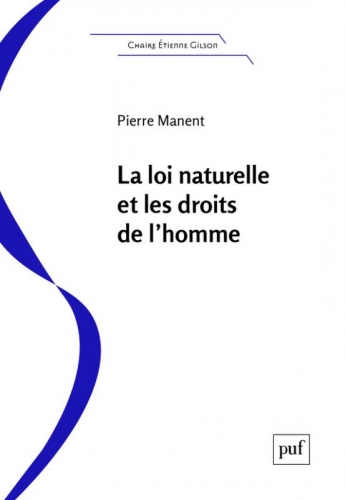“Russia is an inalienable and organic part of Greater Europe and European civilization. Our citizens think of themselves as European. That’s why Russia proposes moving towards the creation of a common economic space from the Atlantic to the Pacific Ocean, a community referred to by Russian experts as ‘the Union of Europe’ which will strengthen Russia’s potential in its economic pivot toward the ‘New Asia.’” Vladimir Putin, President of the Russian Federation, February 2012
The allegations of ‘Russian meddling’ only make sense if they’re put into a broader geopolitical context. Once we realize that Washington is implementing an aggressive “containment” strategy to militarily encircle Russia and China in order to spread its tentacles across Central Asian, then we begin to understand that Russia is not the perpetrator of the hostilities and propaganda, but the victim. The Russia hacking allegations are part of a larger asymmetrical-information war that has been joined by the entire Washington political establishment. The objective is to methodically weaken an emerging rival while reinforcing US global hegemony.
Try to imagine for a minute, that the hacking claims were not part of a sinister plan by Vladimir Putin “to sow discord and division” in the United States, but were conjured up to create an external threat that would justify an aggressive response from Washington. That’s what Russiagate is really all about.
US policymakers and their allies in the military and Intelligence agencies, know that relations with Russia are bound to get increasingly confrontational, mainly because Washington is determined to pursue its ambitious “pivot” to Asia plan. This new regional strategy focuses on “strengthening bilateral security alliances, expanding trade and investment, and forging a broad-based military presence.” In short, the US is determined to maintain its global supremacy by establishing military outposts across Eurasia, continuing to tighten the noose around Russia and China, and reinforcing its position as the dominant player in the most populous and prosperous region in the world. The plan was first presented in its skeletal form by the architect of Washington’s plan to rule the world, Zbigniew Brzezinski. Here’s how Jimmy Carter’s former national security advisor summed it up in his 1997 magnum opus, The Grand Chessboard: American Primacy And Its Geostrategic Imperatives:
“For America, the chief geopolitical prize is Eurasia… (p.30)….. Eurasia is the globe’s largest continent and is geopolitically axial. A power that dominates Eurasia would control two of the world’s three most advanced and economically productive regions. …. About 75 per cent of the world’s people live in Eurasia, and most of the world’s physical wealth is there as well, both in its enterprises and underneath its soil. Eurasia accounts for 60 per cent of the world’s GNP and about three-fourths of the world’s known energy resources.” (“The Grand Chessboard:American Primacy And Its Geostrategic Imperatives”, Zbigniew Brzezinski, Basic Books, page 31, 1997)
14 years after those words were written, former Secretary of State Hillary Clinton took up the banner of imperial expansion and demanded a dramatic shift in US foreign policy that would focus primarily on increasing America’s military footprint in Asia. It was Clinton who first coined the term “pivot” in a speech she delivered in 2010 titled “America’s Pacific Century”. Here’s an excerpt from the speech:
“As the war in Iraq winds down and America begins to withdraw its forces from Afghanistan, the United States stands at a pivot point. Over the last 10 years, we have allocated immense resources to those two theaters. In the next 10 years, we need to be smart and systematic about where we invest time and energy, so that we put ourselves in the best position to sustain our leadership, secure our interests, and advance our values. One of the most important tasks of American statecraft over the next decade will therefore be to lock in a substantially increased investment — diplomatic, economic, strategic, and otherwise — in the Asia-Pacific region…
Open markets in Asia provide the United States with unprecedented opportunities for investment, trade, and access to cutting-edge technology…..American firms (need) to tap into the vast and growing consumer base of Asia…The region already generates more than half of global output and nearly half of global trade. As we strive to meet President Obama’s goal of doubling exports by 2015, we are looking for opportunities to do even more business in Asia…and our investment opportunities in Asia’s dynamic markets.”
(“America’s Pacific Century”, Secretary of State Hillary Clinton”, Foreign Policy Magazine, 2011)
The pivot strategy is not some trifling rehash of the 19th century “Great Game” promoted by think-tank fantasists and conspiracy theorists. It is Washington’s premier foreign policy doctrine, a ‘rebalancing’ theory that focuses on increasing US military and diplomatic presence across the Asian landmass. Naturally, NATO’s ominous troop movements on Russia’s western flank and Washington’s provocative naval operations in the South China Sea have sent up red flags in Moscow and Beijing. Former Chinese President Hu Jintao summed it up like this:
“The United States has strengthened its military deployments in the Asia-Pacific region, strengthened the US-Japan military alliance, strengthened strategic cooperation with India, improved relations with Vietnam, inveigled Pakistan, established a pro-American government in Afghanistan, increased arms sales to Taiwan, and so on. They have extended outposts and placed pressure points on us from the east, south, and west.”
Russian President Vladimir Putin has been equally critical of Washington’s erratic behavior. NATO’s eastward expansion has convinced Putin that the US will continue to be a disruptive force on the continent for the foreseeable future. Both leaders worry that Washington’s relentless provocations will lead to an unexpected clash that will end in war.
Even so, the political class has fully embraced the pivot strategy as a last-gasp attempt to roll back the clock to the post war era when the world’s industrial centers were in ruins and America was the only game in town. Now the center of gravity has shifted from west to east, leaving Washington with just two options: Allow the emerging giants in Asia to connect their high-speed rail and gas pipelines to Europe creating the world’s biggest free trade zone, or try to overturn the applecart by bullying allies and threatening rivals, by implementing sanctions that slow growth and send currencies plunging, and by arming jihadist proxies to fuel ethnic hatred and foment political unrest. Clearly, the choice has already been made. Uncle Sam has decided to fight til the bitter end.
Washington has many ways of dealing with its enemies, but none of these strategies have dampened the growth of its competitors in the east. China is poised to overtake the US as the world’s biggest economy sometime in the next 2 decades while Russia’s intervention in Syria has rolled back Washington’s plan to topple Bashar al Assad and consolidate its grip on the resource-rich Middle East. That plan has now collapsed forcing US policymakers to scrap the War on Terror altogether and switch to a “great power competition” which acknowledges that the US can no longer unilaterally impose its will wherever it goes. Challenges to America’s dominance are emerging everywhere particularly in the region where the US hopes to reign supreme, Asia.
This is why the entire national security state now stands foursquare behind the improbable pivot plan. It’s a desperate “Hail Mary” attempt to preserve the decaying unipolar world order.
What does that mean in practical terms?
It means that the White House (the National Security Strategy) the Pentagon (National Defense Strategy) and the Intelligence Community (The Worldwide Threat Assessment) have all drawn up their own respective analyses of the biggest threats the US currently faces. Naturally, Russia is at the very top of those lists. Russia has derailed Washington’s proxy war in Syria, frustrated US attempts to establish itself across Central Asia, and strengthened ties with the EU hoping to “create a harmonious community of economies from Lisbon to Vladivostok.” (Putin)
Keep in mind, the US does not feel threatened by the possibility of a Russian attack, but by Russia’s ability to thwart Washington’s grandiose imperial ambitions in Asia.
As we noted, the National Security Strategy (NSS) is a statutorily mandated document produced by the White House that explains how the President intends to implement his national security vision. Not surprisingly, the document’s main focus is Russia and China. Here’s an excerpt:
“China and Russia challenge American power, influence, and interests, attempting to erode American security and prosperity. They are determined to make economies less free and less fair, to grow their militaries, and to control information and data to repress their societies and expand their influence.” (Neither Russia nor China are attempting to erode American security and prosperity.” They are merely growing their economies and expanding their markets. If US corporations reinvested their capital into factories, employee training and R and D instead of stock buybacks and executive compensation, then they would be better able to complete globally.)
Here’s more: “Through modernized forms of subversive tactics, Russia interferes in the domestic political affairs of countries around the world.” (This is a case of the ‘pot calling the kettle black.’)
“Today, actors such as Russia are using information tools in an attempt to undermine the legitimacy of democracies. Adversaries target media, political processes, financial networks, and personal data.” (The western media behemoth is the biggest disinformation bullhorn the world has ever seen. RT and Sputnik don’t hold a candle to the ginormous MSM ‘Wurlitzer’ that controls the cable news stations, the newspapers and most of the print media. The Mueller Report proves beyond a doubt that the politically-motivated nonsense one reads in the media is neither reliably sourced nor trustworthy.)
The Worldwide Threat Assessment of the US Intelligence Community is even more explicit in its attacks on Russia. Check it out:
“Threats to US national security will expand and diversify in the coming year, driven in part by China and Russia as they respectively compete more intensely with the United States and its traditional allies and partners…. We assess that Moscow will continue pursuing a range of objectives to expand its reach, including undermining the US-led liberal international order, dividing Western political and security institutions, demonstrating Russia’s ability to shape global issues, and bolstering Putin’s domestic legitimacy.
We assess that Moscow has heightened confidence, based on its success in helping restore the Asad regime’s territorial control in Syria,… Russia seeks to boost its military presence and political influence in the Mediterranean and Red Seas… mediate conflicts, including engaging in the Middle East Peace Process and Afghanistan reconciliation….
Russia will continue pressing Central Asia’s leaders to support Russian-led economic and security initiatives and reduce engagement with Washington. …Russia and China are likely to intensify efforts to build influence in Europe at the expense of US interests…” (“The Worldwide Threat Assessment of the US Intelligence Community”, USG)
Notice how the Intelligence Community summary does not suggest that Russia poses an imminent military threat to the US, only that Russia has restored order in Syria, strengthened ties with China, emerged as an “honest broker” among countries in the Middle East, and used the free market system to improve relations with its trading partners and grow its economy. The IC appears to find fault with Russia because it is using the system the US created to better advantage than the US. This is entirely understandable given Putin’s determination to draw Europe and Asia closer together through a region-wide economic integration plan. Here’s Putin:
“We must consider more extensive cooperation in the energy sphere, up to and including the formation of a common European energy complex. The Nord Stream gas pipeline under the Baltic Sea and the South Stream pipeline under the Black Sea are important steps in that direction. These projects have the support of many governments and involve major European energy companies. Once the pipelines start operating at full capacity, Europe will have a reliable and flexible gas-supply system that does not depend on the political whims of any nation. This will strengthen the continent’s energy security not only in form but in substance. This is particularly relevant in the light of the decision of some European states to reduce or renounce nuclear energy.”
The gas pipelines and high-speed rail are the arteries that will bind the continents together and strengthen the new EU-Asia superstate. This is Washington’s greatest nightmare, a massive, thriving free trade zone beyond its reach and not subject to its rules. In 2012, Hillary Clinton acknowledged this new threat and promised to do everything in her power to destroy it. Check out this excerpt:
“U.S. Secretary of State Hillary Clinton described efforts to promote greater economic integration in Eurasia as “a move to re-Sovietize the region.”…. “We know what the goal is and we are trying to figure out effective ways to slow down or prevent it,” she said at an international conference in Dublin on December 6, 2012, Radio Free Europe.”
“Slow down or prevent it”?
Why? Because EU-Asia growth and prosperity will put pressure on US debt markets, US corporate interests, US (ballooning) national debt, and the US Dollar? Is that why Hillary is so committed to sabotaging Putin’s economic integration plan?
Indeed, it is. Washington wants to block progress and prosperity in the east in order to extend the lifespan of a doddering and thoroughly-bankrupt state that is presently $22 trillion in the red but continues to write checks on an overdrawn account.
But Russia shouldn’t be blamed for Washington’s profligate behavior, that’s not Putin’s fault. Moscow is merely using the free market system more effectively that the US.
Now consider the Pentagon’s 2018 National Defense Strategy (NDS) which reiterates many of the same themes as the other two documents.
“Today, we are emerging from a period of strategic atrophy, aware that our competitive military advantage has been eroding. We are facing increased global disorder, characterized by decline in the long-standing rules-based international order—creating a security environment more complex and volatile than any we have experienced in recent memory. Inter-state strategic competition, not terrorism, is now the primary concern in U.S. national security.”
(Naturally, the “security environment” is going to be more challenging when ‘regime change’ is the cornerstone of one’s foreign policy. Of course, the NDS glosses over that sad fact. Here’s more:)
“Russia has violated the borders of nearby nations and pursues veto power over the economic, diplomatic, and security decisions of its neighbors…..(Baloney. Russia has been a force for stability in Syria and Ukraine. If Obama had his way, Syria would have wound up like Iraq, a hellish wastelands occupied by foreign mercenaries. Is that how the Pentagon measures success?) Here’s more:
“China and Russia want to shape a world consistent with their authoritarian model…
“China and Russia are now undermining the international order from within the system…….
“China and Russia are the principal priorities for the Department… because of the magnitude of the threats they pose to U.S. security.” (National Defense Strategy of the United States of America)
Get the picture? China and Russia, China and Russia, China and Russia. Bad, bad, bad.
Why? Because they are successfully implementing their own development model which is NOT programed to favor US financial institutions and corporations. That’s the whole thing in a nutshell. The only reason Russia and China are a threat to the “rules-based system”, is because Washington insists on being the only one who makes the rules. That’s why foreign leaders are no longer falling in line, because it’s not a fair system.
These assessments represent the prevailing opinion of senior-level policymakers across the spectrum. (The White House, the Pentagon and the Intelligence Community) The USG is unanimous in its judgement that a harsher more combative approach is needed to deal with Russia and China. Foreign policy elites want to put the nation on the path to more confrontation, more conflict and more war. At the same time, none of these three documents suggest that Russia has any intention of launching an attack on the United States. The greatest concern is the effect that emerging competitors will have on Washington’s provocative plan for military and economic expansion, the threat that Russia and China pose to America’s tenuous grip on global power. It is that fear that drives US foreign policy.
And this is broader context into which we must fit the Russia investigation. The reason the Russia hacking furor has been allowed to flourish and spread despite the obvious lack of any supporting evidence, is because the vilifying of Russia segues perfectly with the geopolitical interests of elites in the government. The USG now works collaboratively with the media to influence public attitudes on issues that are important to the powerful foreign policy establishment. The ostensible goal of these psychological operations (PSYOP) is to selectively use information on “audiences to influence their emotions, motives, objective reasoning, and ultimately the behavior of… organizations, groups, and individuals.”
The USG now sees the minds of ordinary Americans as a legitimate target for their influence campaigns. They regard attitudes and perceptions as “the cognitive domain of the battlespace” which they must exploit in order to build public support for their vastly unpopular wars and interventions. The relentless Russiagate narrative (which was first referred to the FBI by the chief architect of the Syrian War, former-CIA Director John Brennan) represents the disinformation component of the broader campaign against Russia. Foreign policy elites are determined to persuade the American people that Russia constitutes a material threat to their security that must be countered by tighter sanctions, more sabre-rattling, and eventually war.





 del.icio.us
del.icio.us
 Digg
Digg


 The Double Standard that Relativism Creates
The Double Standard that Relativism Creates Our flight from the law in the name of more freedom to act has paradoxically undermined the principles for practical action. It turns out that we could not make our own meaning and give ourselves our own laws and ends.
Our flight from the law in the name of more freedom to act has paradoxically undermined the principles for practical action. It turns out that we could not make our own meaning and give ourselves our own laws and ends.